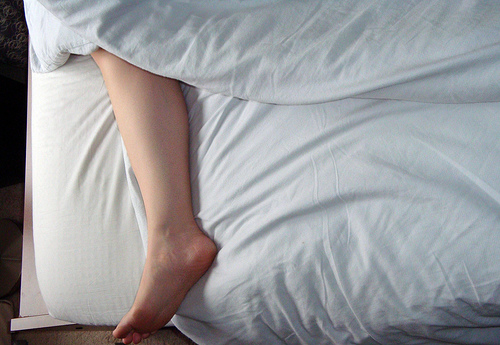If you spend most nights tossing and turning for hours, you likely spend your days feeling tired, irritable, and unable to concentrate. Insomnia affects more people than you might think, but these proven tips can help you get a good night’s sleep.
- Set a schedule. If you often go to bed at very different times, it could be a cause of your insomnia. Try to set a bedtime for yourself and stick to it so that your body gets used to falling asleep at the same time each night.
- Give yourself 15 minutes. If you can’t fall asleep within 15 minutes of going to bed, get up and do something else. Lying awake for hours could cause you to stress out more, so try to tire yourself out by reading or washing the dishes.
- Change your diet. Don’t eat right before you go to bed, but try not to go to bed hungry, either. You likely already know that you shouldn’t drink caffeine before bedtime, but try to avoid alcohol, as well.
- Create a comfortable sleep space. If you still have trouble sleeping, it may be your surroundings. Wear earplugs if the outside noise is too loud, replace your blankets to suit your temperature needs, or add a mattress pad if your bed is uncomfortable.
20 Ways To Sleep Better Every Night [Prevention]
Sleep tips: 7 steps to better sleep [Mayo Clinic]
How to Sleep Better [Help Guide]
Healthy Sleep Tips [National Sleep Foundation]
How To Get A Better Night's Sleep [Sleepless in America]


 Equal Housing Opportunity
Equal Housing Opportunity